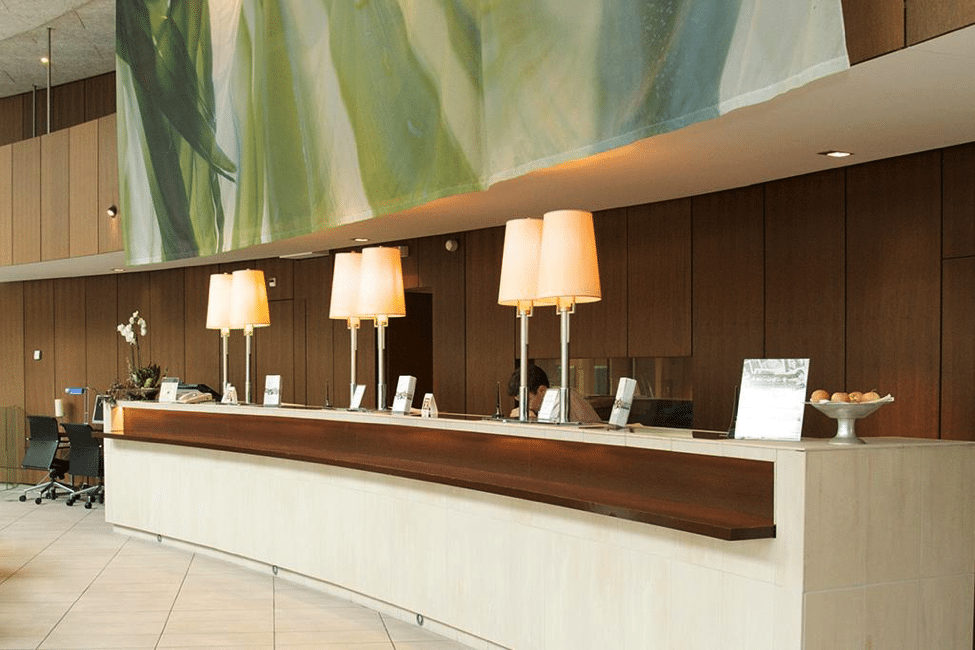Skift Take
As hospitality businesses struggle to create operational efficiencies, many look to tech to help hotel staff ditch the desk.
This sponsored content was created in collaboration with a Skift partner.
In the 1983 film Local Hero, a young American businessman sent to Scotland encounters an innkeeper who is also the accountant next door. When taking on each role, the man has a different personality. The accountant is unctuous and the innkeeper is vaguely rude, as a New York Times review noted.
There’s some truth in that exaggeration. As any traveler will tell you, the smaller the hotel, the more likely it is that the employees will wear several hats. For the larger companies though, employees’ roles are likely to be much more rigid. If the bar is overrun, guests may glance longingly at the empty front desk and wonder if there’s a better way to allocate staff.
Thanks to enhanced automation, there is. In particular, a software suite that includes a mobile-facing interface can let hotels abandon that mainstay of hoteling, the front-desk receptionist. In some cases, the same goes for the front desk. Using such a solution, hotels can address labor costs, which can represent up to one-half of total operating expenses.
For instance, Robert Holland, regional operating manager for the Bermondsey Hotel in London, used software automation tools to rearrange his workforce more efficiently. “After breakfast service, the waiters come and help greet people who arrive, taking their bags through,” he said. “And when the reception isn’t too busy, the receptionists come and help out in the restaurant and vice versa.”
Holland said the change took place last October. Some employees were initially resistant, he said. “Obviously staff that had been there a long time were reticent,” he said. “They were often returning to their stations. If you were a restaurant worker before you’d gravitate toward hanging around the coffee machine. If you were a receptionist, you’d probably feel more comfortable by the front office.”
Despite those growing pains, Holland said that the hotel was able to eliminate three full-time workers. Because the UK recently introduced a higher minimum wage, the hotel was able to keep its spending on workers level, thanks to the reallocation of staff.
Some are taking this idea even further. Since about 2010 or so, many hotels have experimented with ditching the front desk. “For guests, staying in a hotel could become that bit more like staying at a friend’s house, where you’re approached on entry, given a comfortable seat and a drink, and then shown your room,” a report in The Economist noted around that time
While the idea might have been ahead of its time in 2010, smartphone saturation hit critical mass a while ago. Software systems like ALICE let staff not only access their work from their staff app (usually on an ipod touch or Android device). Guests can also use the app to check in via their smartphone app and then request room service, get spa services or get a ticket to a local show.
That means that there’s less for hotel employees to do within their current role. “The idea behind a mobile workforce is not only being trained in multiple roles, but if the bar is busy, why do you have five people standing at the front desk?” said Alex Shashou, the cofounder of ALICE. Shashou points out that airports have already done this to an extent. “I often see the person who checked me in at the gate also letting me on the plane.”
That said automation doesn’t necessarily mean substitution. The goal should be to improve the guest experience. “What most people forget to write about the apple retail store model is how many more staff they have than any other store”, said Shashou.
This content is created collaboratively in partnership with our sponsor ALICE
Have a confidential tip for Skift? Get in touch
Tags: automation, hotel, mobile

